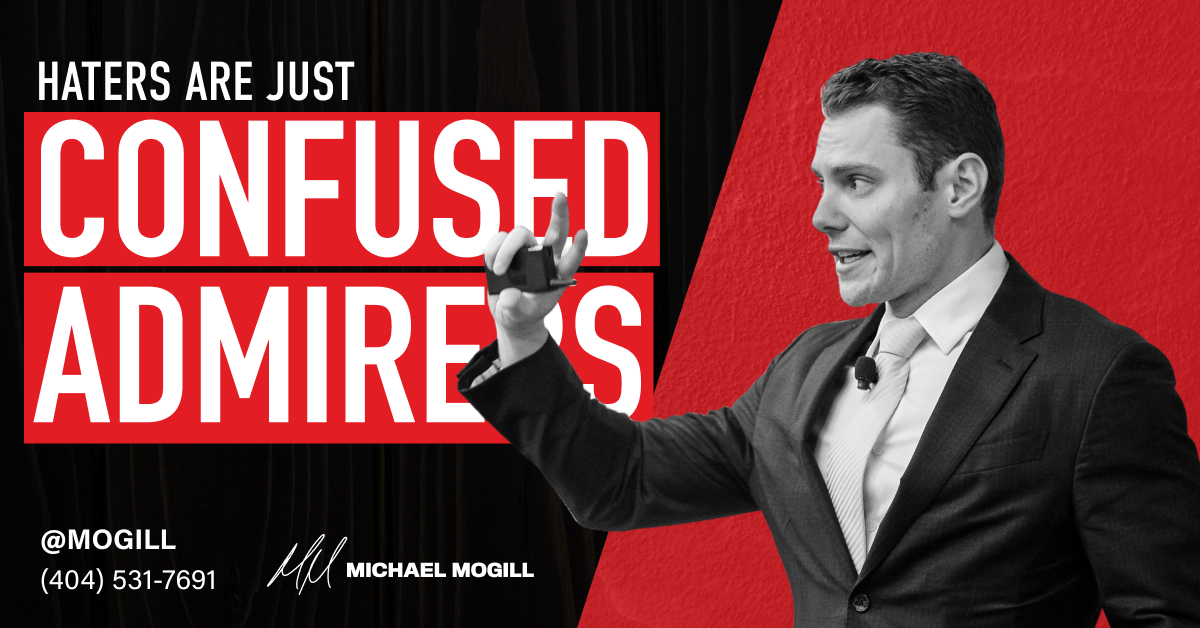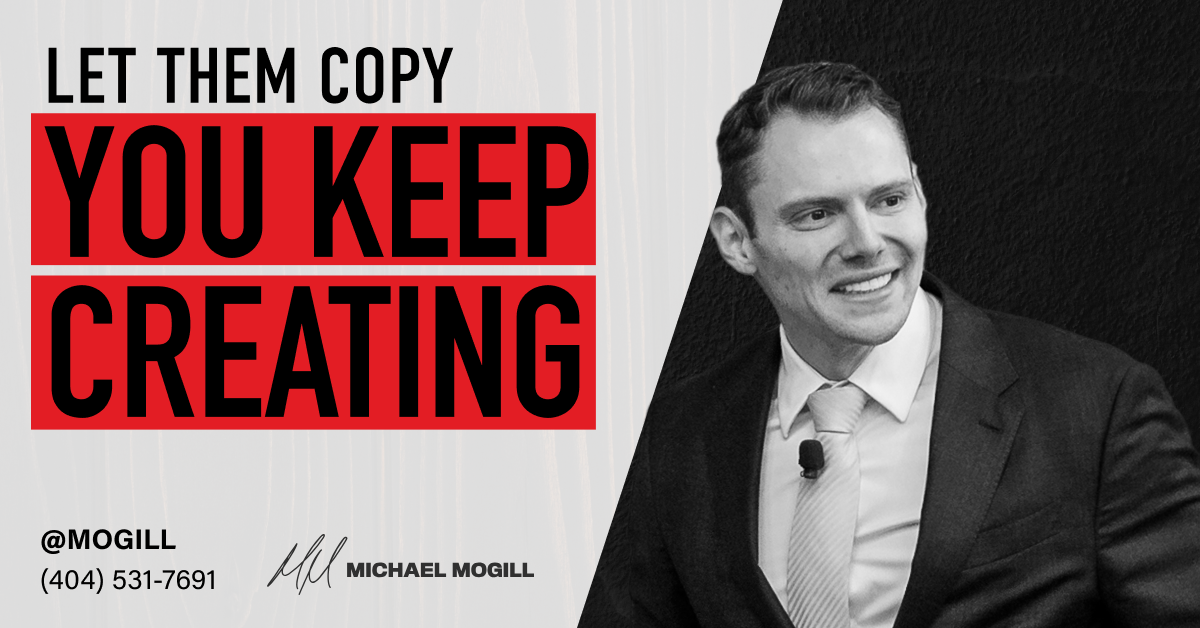Is it ever acceptable to compromise on the values of your organization?
I got to thinking about this question after writing my last article, in which I shared the story of firing a client that was going to invest seven-figures with us. I knew it was the right decision, but doing so put us behind on our revenue goal for the year. We made up the difference, but at the time I made that decision, nothing was guaranteed. Firing that client was a big risk.
At Crisp Video, our values are the bedrock of our organization. Everything we do is based on values like EXAMPLE, or OTHER EXAMPLE. When I fired that client, it was because they disrespected our process, which violates our value of EXAMPLE. Continuing to work with that client would’ve sent the message to our team that our values are for sell.
However, things aren’t always black and white in business. The easy answer to the question I posed at the top of this article is: Of course not, you never compromise on your values.
But what if the easy answer isn’t the right answer? What if refusing to compromise on your values meant going out of business? The version of me in 2019 was in a place where I could afford to fire a seven-figure client. The 2012 version of me might’ve made a different choice.
I know this discussion is bound to ruffle some feathers, but it’s a conversation that needs to be had. Somewhere out there, a new business owner has to decide if they’re going to fire their best salesperson because they’re unlikable and occasionally flaunt the rules, or if they’re going to turn down badly-needed work from a client because they’re not always respectful.
We don’t do business in the “ideal scenario.” We do business in the real world, where decisions aren’t always obvious. Should you compromise on your organizational values? Let’s discuss.
First, Some Ground Rules
Obviously, when I say compromise on your values, I’m not talking about tolerating sexual harassment, violence, theft, or some other illegal activity. Those are ethical violations, which is a completely different discussion. You must have zero tolerance for those kinds of behaviors.
It should also be pointed out the context in which we’re having this discussion. If you’re debating whether to compromise on your values, you’ve exhausted every other option. This is a last resort, the kind of “break glass in case of emergency” move you hope to never make.
If you routinely compromise on your values, then they’re not your values. Period. A continuous disregard for your values is how you end up where Uber and WeWork find themselves.
What Are Values Exactly?
With the ground rules of this discussion established, let’s answer another important question:
What exactly are organizational values?
“Values” is a corporate buzzword, for sure, but have you ever stopped to think about what purpose values serve and why organizations need them? There are likely several variations on the same basic answer, which for me is this: your values are what matters the most to you.
I mentioned earlier that our values at Crisp Video form the bedrock of our decision-making. They represent our best intent and provide a blueprint for best practices.
In 99.9% of situations, the decisions we make fall within the guardrails of our values. But no system is foolproof, and no business is immune to facing situations that test their values.
What Do Organizational Values Require?
No matter what your organization values are or how many you have, there is only one requirement for having values: an organization. This sounds so obvious it’s almost not worth mentioning, but this fact is actually fundamental to our whole discussion.
You can’t have organizational values without an organization. Applied to the context we’ve been discussing, if refusing to compromise on your values puts you out of business, you’ve got an impossible decision on your hands. Is it better to hold true to what you believe and lose your business, or compromise in this extreme instance to keep your doors open and your team members employed? Yes, the “I’d find a way to make it work” option exists in some instances, but not all. So this isn’t a thought experiment—it’s a real decision business owners face.
Again, we’re not talking about doing something unethical or illegal. We’re talking about working with a client who made life miserable for your team, who you swore you’d never work with again because they violated your value of “Our Team Comes First.” Only now, you’re looking at not being able to make payroll, and their agreement would bring in the revenue you need.
Or you’ve got a rush project for a big-name client that requires your team to work nights and weekends for a few months, only that violates your value of “Work-Life Balance.”
What’s the right choice in those situations? Go against your values, or hold true to them?
A Silver Lining in Tough Situations
Let’s say you decide to work with that unpleasant client or ask your team to put in long hours. Is there any upside to going against your values, or are you just stuck in a crappy situation?
In either of these instances, we’re assuming two things:
- You’ve clearly explained the decision to your team.
- You’ve set a deadline: we’re only doing this until this happens.
Assuming those two things, I do see an upside: you discover the resilience and strength of your team. If your team believes in the organization and its mission, what are they willing to do to keep the lights on? Who will step up to get the organization out of survival mode?
It’s not ideal, and there will understandably be people upset with the decision to violate the values that you all believe in. But if you as the business owner made that choice knowing it was the only option you had, my hope is your team will move past that difficulty and rally in a way that you didn’t know was possible. Their true resilience will come shining through.
That means you will move from survival mode to a more stable place, and hopefully never be back in a situation where you’re faced with that dilemma again. When you come out the other side, though, you come out knowing that your team is battle-tested and ready for anything.
So, Should You Compromise?
Our initial question was: Is it ever acceptable to compromise the values of your organization?
Having been in survival mode more than once, I say the answer is “yes.” When the options are closing your doors and compromising your values, I would take option #2. Both options suck, let’s be honest, but I believe the second option causes the least harm.
I know there will be people who disagree with me, who would argue that there’s always a third option between going out of business and compromising your values. I believe that is generally true, but there are instances where you only have two doors and you have to pick one.
That’s why this conversation is so important to have. Understandably, we’ve made it a taboo to go against your organization’s values under any circumstances, which places business owners in every industry under a tremendous amount of pressure. When they’re stuck with a lose-lose scenario, they feel like they’ll be a failure if they compromise on their values.
I would argue the bigger failure is not making the choice that saves the business.
What do you think? Is it acceptable to compromise your values? Have you ever been in a situation where you’ve faced that choice? What did you do and how did it turn out?






